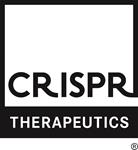European Commission Approves First CRISPR/Cas9 Gene-Edited Therapy, CASGEVY™ (exagamglogene autotemcel), for the Treatment of Sickle Cell Disease (SCD) and Transfusion-Dependent Beta Thalassemia (TDT)
—Over 8,000 patients 12 years of age and older with severe SCD or TDT may be eligible for treatment—
ZUG, Switzerland and BOSTON, Feb. 13, 2024 (GLOBE NEWSWIRE) -- CRISPR Therapeutics (Nasdaq: CRSP), a biopharmaceutical company focused on creating transformative gene-based medicines for serious diseases, announced today that the European Commission has granted conditional marketing authorization to CASGEVY™ (exagamglogene autotemcel [exa-cel]), a CRISPR/Cas9 gene edited therapy. CASGEVY is approved for the treatment of patients who are 12 years of age and older with severe sickle cell disease (SCD) characterized by recurrent vaso-occlusive crises (VOCs) or transfusion-dependent beta thalassemia (TDT), for whom hematopoietic stem cell (HSC) transplantation is appropriate and a human leukocyte antigen matched related HSC donor is not available.
CASGEVY is the only genetic therapy approved for SCD and TDT patients in the European Union (EU) and with this approval, there are now more than 8,000 patients potentially eligible for treatment.
“The approval by the European Commission is yet another important regulatory milestone underscoring the potentially transformative benefit of CASGEVY for patients with severe sickle cell disease and transfusion-dependent beta thalassemia,” said Samarth Kulkarni, Chairman and Chief Executive Officer of CRISPR Therapeutics. “There is a significant burden of these diseases across Europe, and we look forward to bringing this therapy to these patients in need.”
Vertex leads global development, manufacturing, and commercialization of CASGEVY under the terms of a 60/40 profit sharing agreement with CRISPR Therapeutics. Vertex is working closely with national health authorities in the European Union (EU) to secure access for eligible patients as quickly as possible. Through this work, they have secured early access for eligible TDT patients in France ahead of the national reimbursement process. Vertex continues to engage with hospitals experienced in stem cell transplantation to establish a network of independently operated authorized treatment centers (ATCs) for the administration of CASGEVY. There are currently three activated ATCs in the EU with plans to activate a total of approximately 25 centers across Europe.
About Sickle Cell Disease (SCD)
SCD is a debilitating, progressive, life shortening genetic disease. SCD patients report health-related quality of life scores well below the general population and significant health care resource utilization. SCD affects the red blood cells, which are essential for carrying oxygen to all organs and tissues of the body. SCD causes severe pain, organ damage and shortened life span due to misshapen or “sickled” red blood cells. The clinical hallmark of SCD is vaso-occlusive crises (VOCs), which are caused by blockages of blood vessels by sickled red blood cells and result in severe and debilitating pain that can happen anywhere in the body at any time. SCD requires lifelong treatment and significant use of health care resources, and ultimately results in reduced life expectancy, decreased quality of life and reduced lifetime earnings and productivity. In Europe, the mean age of death for patients living with SCD is around 40 years. Stem cell transplant from a matched donor is a curative option but is only available to a small fraction of people living with SCD because of the lack of available donors.
About Transfusion-Dependent Beta Thalassemia (TDT)
TDT is a serious, life-threatening genetic disease. TDT patients report health-related quality of life scores below the general population and significant health care resource utilization. TDT requires frequent blood transfusions and iron chelation therapy throughout a person’s life. Due to anemia, patients living with TDT may experience fatigue and shortness of breath, and infants may develop failure to thrive, jaundice and feeding problems. Complications of TDT can also include an enlarged spleen, liver and/or heart, misshapen bones and delayed puberty. TDT requires lifelong treatment and significant use of health care resources, and ultimately results in reduced life expectancy, decreased quality of life and reduced lifetime earnings and productivity. In Europe, the mean age of death for patients living with TDT is 50-55 years. Stem cell transplant from a matched donor is a curative option but is only available to a small fraction of people living with TDT because of the lack of available donors.
About CASGEVY™ (exagamglogene autotemcel [exa-cel])
CASGEVY™ is a non-viral, ex vivo CRISPR/Cas9 gene-edited cell therapy for eligible patients with SCD or TDT, in which a patient’s own hematopoietic stem and progenitor cells are edited at the erythroid specific enhancer region of the BCL11A gene through a precise double-strand break. This edit results in the production of high levels of fetal hemoglobin (HbF; hemoglobin F) in red blood cells. HbF is the form of the oxygen-carrying hemoglobin that is naturally present during fetal development, which then switches to the adult form of hemoglobin after birth. CASGEVY has been shown to reduce or eliminate VOCs for patients with SCD and transfusion requirements for patients with TDT.
CASGEVY is approved for certain indications in multiple jurisdictions for eligible patients.
About Conditional Marketing Authorizations (CMAs)
CMAs are for medicines that fulfil a significant unmet medical need such as being for serious and life-threatening diseases, where no satisfactory treatment methods are available or where the medicine offers a major therapeutic advantage. A CMA is granted where comprehensive clinical data is not yet complete, but the benefit of the medicine to address a significant unmet need outweighs the need for data that will become available in the future. CMAs are valid for one year and renewable annually with ongoing regulatory review of data.
About the CRISPR Collaboration and Vertex
CRISPR Therapeutics and Vertex entered into a strategic research collaboration in 2015 focused on the use of CRISPR/Cas9 to discover and develop potential new treatments aimed at the underlying genetic causes of human disease. CASGEVY (exa-cel) represents the first potential treatment to emerge from the joint research program. Under an amended collaboration agreement, Vertex now leads global development, manufacturing and commercialization of CASGEVY and splits program costs and profits worldwide 60/40 with CRISPR Therapeutics. Vertex is the manufacturer and exclusive license holder of CASGEVY™.
About CRISPR Therapeutics
Since its inception over a decade ago, CRISPR Therapeutics has transformed from a research-stage company advancing programs in the field of gene editing, to a company with a diverse portfolio of product candidates across a broad range of disease areas including hemoglobinopathies, oncology, regenerative medicine, cardiovascular and rare diseases. The Nobel Prize-winning CRISPR science has revolutionized biomedical research and represents a powerful, clinically validated approach with the potential to create a new class of potentially transformative medicines. To accelerate and expand its efforts, CRISPR Therapeutics has established strategic partnerships with leading companies including Bayer and Vertex Pharmaceuticals. CRISPR Therapeutics AG is headquartered in Zug, Switzerland, with its wholly-owned U.S. subsidiary, CRISPR Therapeutics, Inc., and R&D operations based in Boston, Massachusetts and San Francisco, California, and business offices in London, United Kingdom. To learn more, visit www.crisprtx.com.
CRISPR THERAPEUTICS® standard character mark and design logo are trademarks and registered trademarks of CRISPR Therapeutics AG. The CASGEVY™ word mark and design are trademarks of Vertex Pharmaceuticals Incorporated. All other trademarks and registered trademarks are the property of their respective owners.
(CRSP-GEN)
CRISPR Therapeutics Forward-Looking Statement
This press release may contain a number of “forward-looking statements” within the meaning of the Private Securities Litigation Reform Act of 1995, as amended, including statements made by Samarth Kulkarni, Ph.D. in this press release, as well as statements regarding: (i) plans and expectations for the commercialization of, and anticipated benefits of, CASGEVY, including the anticipated patient population eligible for CASGEVY in the European Union and plans for patient access to CASGEVY; (ii) timelines for and expectations regarding additional regulatory agency decisions; and (iii) expectations regarding the therapeutic value, development, and commercial potential of CRISPR/Cas9 gene editing technologies and therapies. Without limiting the foregoing, the words “believes,” “anticipates,” “plans,” “expects” and similar expressions are intended to identify forward-looking statements. You are cautioned that forward-looking statements are inherently uncertain. Although CRISPR Therapeutics believes that such statements are based on reasonable assumptions within the bounds of its knowledge of its business and operations, existing and prospective investors are cautioned that forward-looking statements are inherently uncertain, are neither promises nor guarantees and not to place undue reliance on such statements, which speak only as of the date they are made. Actual performance and results may differ materially from those projected or suggested in the forward-looking statements due to various risks and uncertainties. These risks and uncertainties include, among others, that: the clinical data from ongoing clinical trials of exa-cel will not continue or be repeated in ongoing or planned clinical trials or may not support regulatory approval or renewal of conditional authorization; regulatory approval in other jurisdictions may not occur on anticipated timelines or at all; adequate pricing or reimbursement may not be secured to support continued development or commercialization of exa-cel following regulatory approval; future competitive or other market factors may adversely affect the commercial potential for CASGEVY; CRISPR Therapeutics may not realize the potential benefits of its collaboration with Vertex; there are uncertainties regarding the intellectual property protection for CRISPR Therapeutics’ technology and intellectual property belonging to third parties; and those risks and uncertainties described under the heading “Risk Factors” in CRISPR Therapeutics’ most recent annual report on Form 10-K, quarterly report on Form 10-Q, and in any other subsequent filings made by CRISPR Therapeutics with the U.S. Securities and Exchange Commission, which are available on the SEC's website at www.sec.gov. CRISPR Therapeutics disclaims any obligation or undertaking to update or revise any forward-looking statements contained in this press release, other than to the extent required by law.
Investor Contact:
Susan Kim
+1-617-307-7503
susan.kim@crisprtx.com
Media Contact:
Rachel Eides
+1-617-315-4493
rachel.eides@crisprtx.com



Source: CRISPR Therapeutics AG



